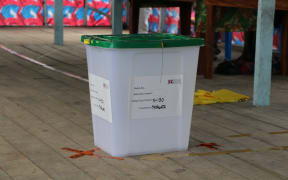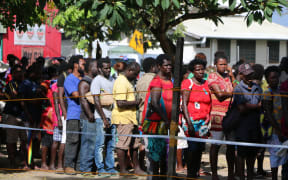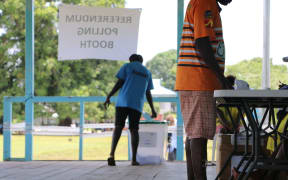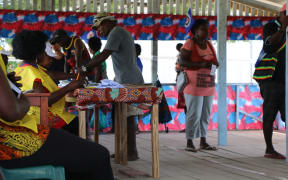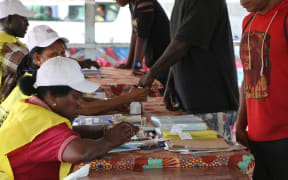Despite a peaceful independence vote in Bougainville, there are fears of potential security problems in the post-referendum period.
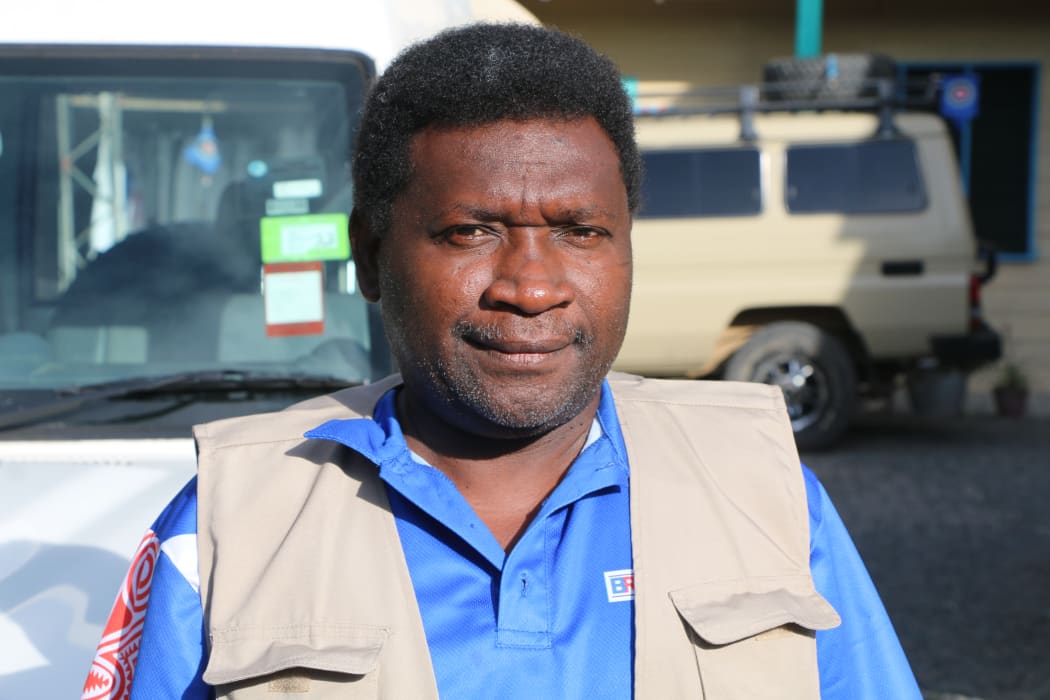
Patrick Nisira of the Bougainville Referendum Commission Photo: RNZ / Johnny Blades
Polling in the autonomous Papua New Guinea region's non-binding referendum ended at the weekend.
All ballot boxes are now in Buka, with counting set to begin on Tuesday afternoon.
The result is widely expected to be a majority vote for independence. However, under the Bougainville Peace Agreement, it must be ratified by PNG's national parliament before coming to effect.
The Bougainville Referendum Commission has praised the conduct of Bougainvilleans in participating in the vote. The referendum so far has been a credit to the people of this region, and to the commission itself which has raised the bar significantly on PNG electoral standards.
But the chairman of the commission's Committee on Referendum Security, Patrick Nisira, said it would be during the period following the announcement of the result when the committee expected problems.
"That's the area that we are most concerned about.
"Frustration might build up with the national government and the ABG (Autonomous Bougainville Government) if they do not actually move quickly to facilitate for the result to be ratified in parliament after we return the writs to the Governor-General of Papua New Guinea."
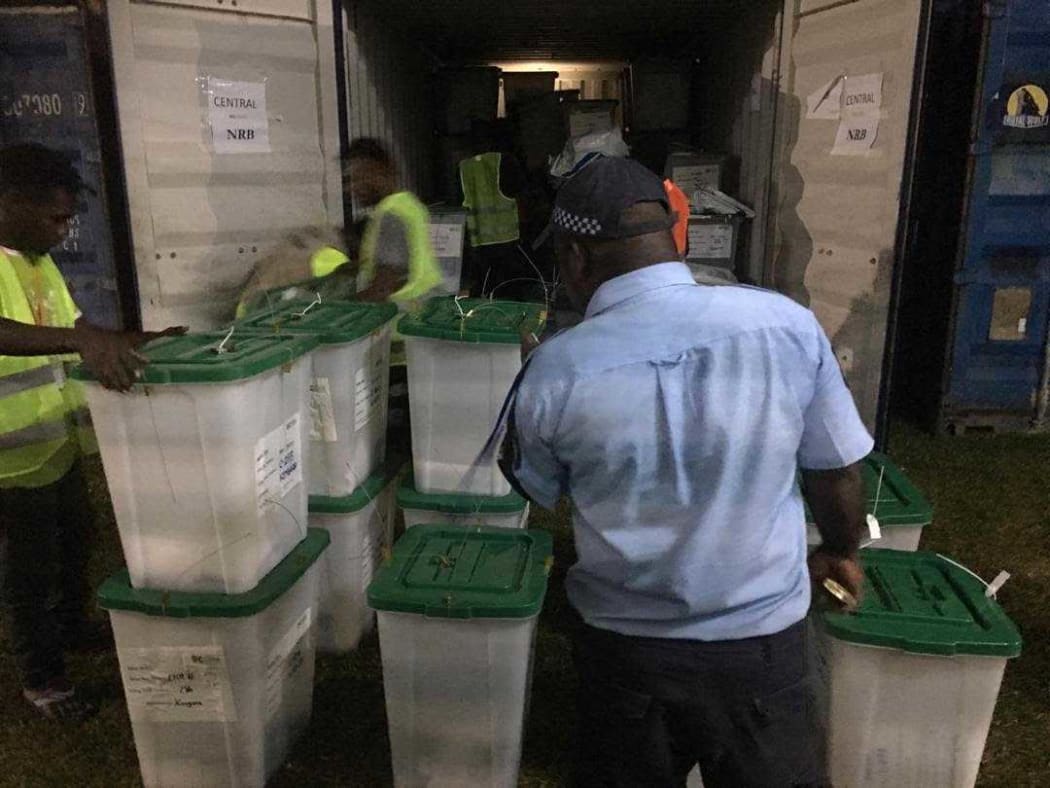
Ballot boxes being brought to Buka for the count. Photo: Bougainville Referendum Commission
Leading up to the historic referendum, Mr Nisira travelled widely across Bougainville as the committee conducted consultations with the 42 community governments of the autonomous region.
It was clear that the referendum would be conducted without any major security problems, but that there was potential for confusion in the period after the referendum if the process lacked certainty.
Some sections of the pro-independence movement, former militant group Me'ekamui, decided not to vote in the referendum. It has claimed Bougainville is already independent because of the 1990 Universal Declaration of Independence by the late secessionist leader Francis Ona.
"These people are out there watching. And if we allow a gap in there, these people might come in and might actually convince people that the national government and the ABG are not genuine in what they're doing.
"Once they do that, they confuse people, and that could possibly trigger renewed conflict on this island."
It was critical, Mr Nisira said, that both governments execute a decisive plan with clear communication.
"From the BRC level we are asking both governments to actually come up with a clear plan, a way forward, especially the people of Bougainville, and the Papua New Guineans need to know what's the programme ahead, how the national government is going to deal with this."
Processing the result
A joint taskforce between the two governments is to conduct consultations on the result after the completion of the referendum. There is uncertainty on both sides about how long this process might take.
PNG's Minister for Bougainville Affairs, Sir Puka Temu, said both governments would adhere to the guidelines of the Peace Agreement, which he added did not determine a time frame for the consultation process.
But he urged Bougainvilleans to allow mainland PNG time to process the result and consider a way forward.
Fear of disintegration of the state - should Bougainville gain independence and set a precedent for other PNG provinces or regions - runs deep in the national parliament.
While the James Marape-led PNG government will have to consider the constitutional provisions for potential Bougainville independence, Sir Puka indicated it would also look at legislation to ensure other parts of the country didn't look to break away from the state in future.
The MP for Bougainville's regional seat, Joe Lera, said there were many issues to sort through in the coming years if transition to independence was to be made.
These related to economy, capacity, public service, and addressing poverty and corruption, he explained.
"Will we still send our students to PNG universities and institutions? Will they still be safe there? Issues of central bank, issue of defence, many issues," Mr Lera reflected.
Another issue never far from debate on Bougainville's viability as an independent nation on its own is whether the Panguna mine, the flashpoint which sparked Bougainville's crisis 30 years ago, should re-open after three decades out of commission.
While grievances around the mine are still unresolved it may be years before the mine can re-open, but some independence advocates argue that tapping back into Panguna's reserves, under new indigenous laws, represents an ideal opportunity to bankroll a new sovereign nation.
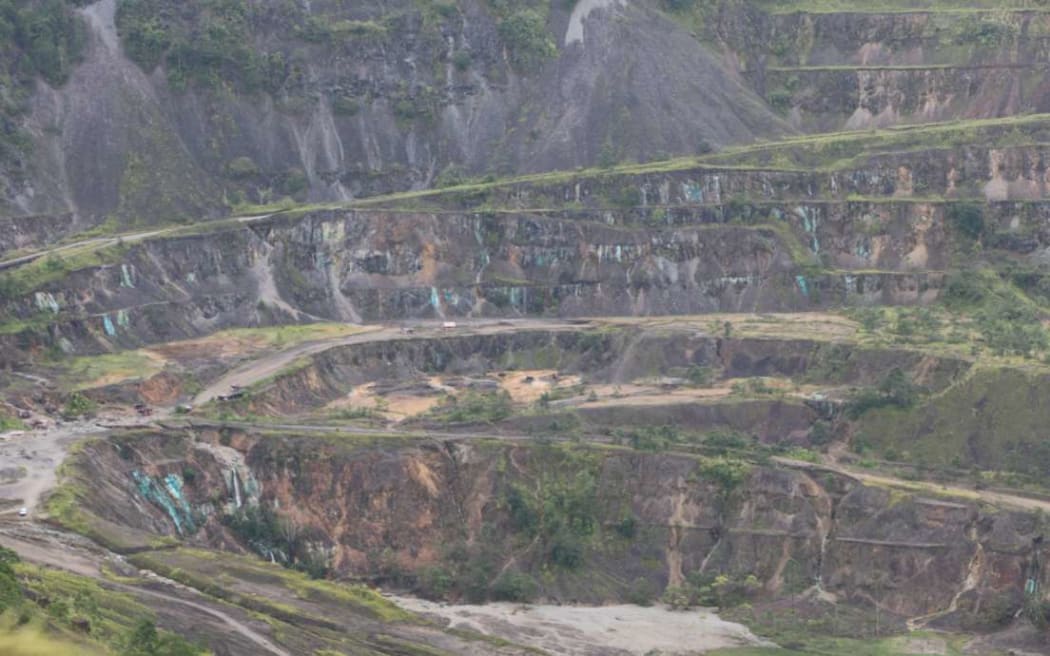
Nature has gradually reclaimed the massive open pit of Bougainville Copper Limited's former lucrative mine. Photo: RNZ Pacific / Johnny Blades
Mr Lera said the expectations of the people have to be carefully managed, revealing PNG's National Executive Council is looking at a possible ten-year time frame is independence is to be approved.
"The two governments have not decided yet, but I'm hearing from the Minister's speech - Minister for Bougainville Affairs (Sir Puka Temu) - the transition period might take 10 years. Meantime, the negotiations will continue."
The civil war on Bougainville ended more than 20 years ago. Bougainvilleans have waited patiently over decades for their referendum, and appear prepared to wait longer - they generally know not to expect an overnight change.
A local peace campaigner, Josephine Kauona, said Bougainvilleans did not want a return to armed conflict, but instead were increasingly focussed on the long-term project of nation-building, developing economic self-reliance and unity.
According to her, most Bougainvilleans see independence as the only way forward. It was now up to the people to express that with a strong majority vote, she said.
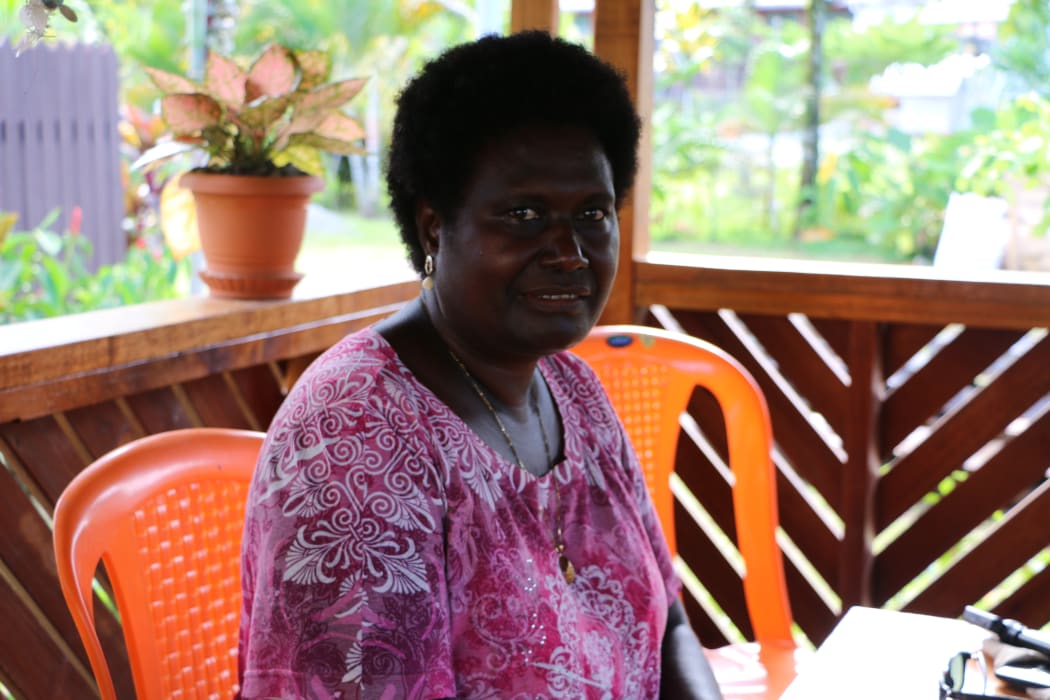
Josephine Kauona. Photo: RNZ / Johnny Blades
"For the two governments what they understand is eighty-plus, or maybe more than 60 ... that's a percentage they're looking at," Ms Kauona said of what might be considered an emphatic result.
"A majority having that say in deciding for their future, that will also make the governments see which way the peoples want their future to be like."
Time factors
While Sir Puka Temu has urged patience from Bougainvilleans as PNG works through the result, time is of the essence.
Mr Lera said it was critical that the result of the referendum be ratified during the current parliament, which ends in 2022.
He explained that current MPs have been educated on the history and circumstances around the Bougainville referendum. But given the typical high turnover of MPs at general elections in PNG, the understanding of Bougainville's situation within parliament could be diminished by the next parliamentary term.
"It might impact on the ratification process," he said.
Another complicating factor is the regional elections for the Autonomous Bougainville Government, due in the middle of next year, with a new, possibly transitional government to be established in June.
These elections could prove to be a distraction from the post-referendum consultations, prompting some politicians to suggest a deferral would be appropriate.
However, this proposal has proven unpopular at the community level.
"This six-month period is critical, and that's where decisions have to be made," Mr Nisira said of the next stage until the regional elections.
Despite an extensive weapons containment process over the past 15 years, there are still some weapons in Bougainville's wider community, not unusual in a post-conflict situation.
But there is very little appetite for a return to the armed conflict, nor the horrors of displacement, when traumatised communities fled to the jungle or struggled in government care centres.
However, Mr Nisira warned that some elements could possibly use weapons if the result announcement was not ratified quickly by the national parliament.
Meanwhile, the Bougainville Referendum Commission's officials are on track in moving into the vote count. A result is likely to be announced by the end of the week.
Following the announcement is a 40-day period in which any disputes over the referendum can be lodged. After the referendum process is complete, it's far from clear what will happen on Bougainville.
